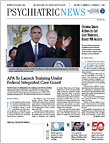With over 165,000 health care apps directly available to patients and clinicians, finding the right one can be daunting. As smartphones and wearable sensors become more common and interest in mobile technology in health care continues to accelerate, there is a need to bring more order and clinical understanding to these smartphone apps and wearable sensors.
The situation is no different in psychiatry, with some sources suggesting there are more apps targeting mental health conditions than any other specialty, such as cardiology, pulmonology, or rheumatology. Perhaps your patients are already using mental health smartphone apps or they will soon ask for your opinions of apps. User-provided reviews and ratings on the iOS-based Apple iTunes, Android-based Google Play, and Android-based Amazon App Store app marketplaces provide few data on quality, safety, or efficacy of smartphone apps or wearable sensors. The FDA has taken a largely hands-off approach and does not monitor the safety or efficacy of most smartphones apps aimed toward mental health.
Thus, the mission of APA’s Smartphone App Evaluation Task Force is simple. We seek to bring the collective psychiatric wisdom and expertise of all APA members and apply their feedback toward creating recommendations and guidelines for the valid, safe, and practical use of smartphone apps and wearable sensors in clinical care.
We recognize this is challenging as there are numerous barriers and many unknown risks regarding the use of this technology for psychiatric patients. We also recognize that the use of these technologies will not be appropriate in many clinical situations and is certainly not a panacea.
One chief barrier in understanding these apps is the lack of strong clinical evidence of efficacy in psychiatric illness, and thus there is no gold standard for what is an effective and useful app. Another is the complexity of security and privacy regulations surrounding these apps and the need to ensure that—at the technical level—these apps maintain patient privacy and comply with local and federal laws (for example, the Health Insurance Portability and Accountability Act).
With these barriers in mind, our task force is ready for the challenge and brings together members with unique clinical, technical, and engineering backgrounds. While offering APA members a practical app-rating system is one of our goals, our initial aim is to create a series of broader app-use guidelines to which clinicians can refer for assessing any app or wearable sensor. We will also educate APA members on the current research of mobile technologies in a clinical setting, inform on current trends in industry and patient use of mobile technology, report on potentials as well as pitfalls concerning apps, and educate regarding mobile compliance with privacy regulations and best practices for use in clinical care.
Look to future issues of
Psychiatric News for guidelines on how to evaluate apps and actual rating scales soon after. In the meantime, please send your comments about the process to
[email protected] or
[email protected]. We look forward to working with you and APA. ■
